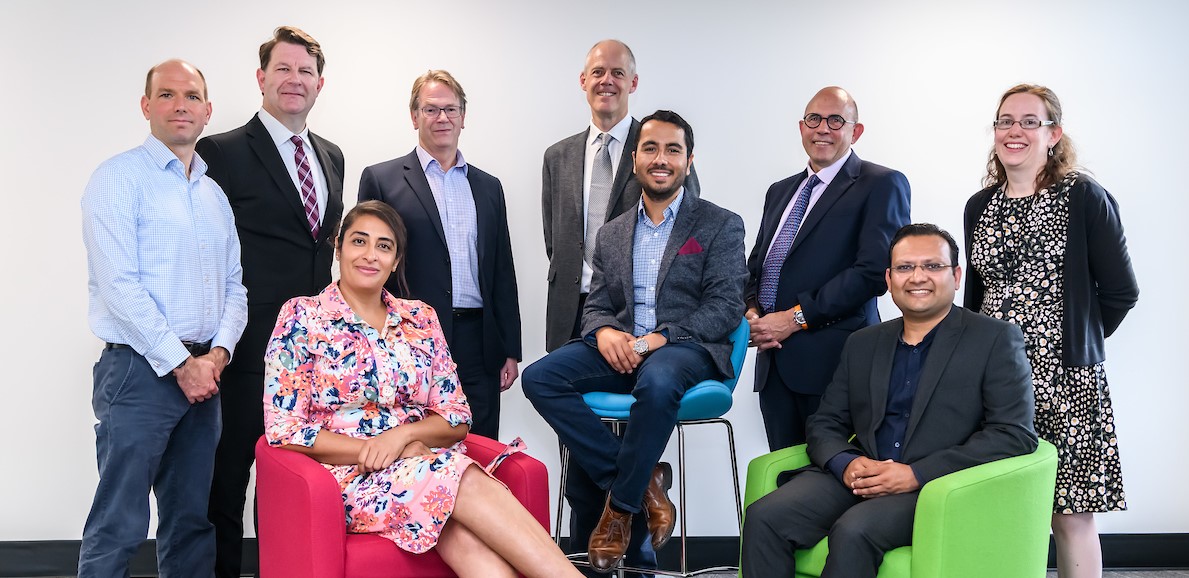
1 November 2019
A business that has found a way to detect corrosion and prevent leaks in assets such as pipelines through a network of remote sensors has secured a £1m funding round.
CorrosionRADAR has secured investment from the MEIF Proof of Concept & Early Stage Fund, which is managed by Mercia and part of the Midlands Engine Investment Fund, alongside additional funds from Mercia and private investors, and grants from the Government’s Innovate UK and the Oil and Gas Technology Centre.
A spin-out from Cranfield University, CorrosionRADAR addresses the challenge of how to detect corrosion in pipelines and other assets where the surface is covered by insulation. The firm, which has offices in Cranfield and Cambridge, uses a network of sensors placed on the pipe to continuously monitor its condition and detect problem areas, along with advanced analytics and artificial intelligence to predict where faults are likely to occur. The system allows facilities managers to focus their resources most effectively and helps prevent leaks.
The technology was developed by PhD student Prafull Sharma and Professor Hoi Yeung. They joined forces with fellow PhD student Mehrdad Silatani and experienced industrialist Chiraz Ennaceur to launch the company in 2017, with backing from Mercia and a grant from Innovate UK.
The system is already being used by large corporates such as Solvay, Sitech and Reliance Industries. This latest round of investment will allow the team to develop new hardware for the oil, gas and petrochemicals industries, while enhancing its predictive analytics and software, creating 10 new jobs for sales and marketing staff.
The annual global cost of corrosion is estimated at over £2 trillion by the worldwide corrosion authority NACE. Dr Chiraz Ennaceur, CEO at CorrosionRADAR, said: “Corrosion is the biggest failure mechanism in the world, with a huge cost to industry. Our vision is to transform corrosion management through smart digital solutions and help pipeline owners and operators to have a safe, reliable and environmentally friendly operation.”
Bill Yost, Investment Manager at Mercia, added: “CorrosionRADAR’s technology solves a major challenge for the oil, gas and chemicals industries and offers a more cost-effective way to manage and maintain infrastructure. This investment will allow the company to further develop its system and reach out to the global marketplace.”
Vicky Hlomuka, SEMLEP’s Growth Hub Manager, said: “Businesses in the South East Midlands are at the cutting-edge of innovation, where clever ideas and new technologies come together into smart business solutions. CorrosionRADAR is a perfect example of this. Investing in businesses through the Midlands Engine Investment Fund is integral in helping companies with this kind of innovation to take the next step in their business journey.”
Grant Peggie, Director at the British Business Bank, said:
“It’s great to see the Midlands Engine Investment Fund supporting innovation in the Midlands. I would encourage other growing, innovative businesses, particularly university spin-out companies, in the region to consider MEIF as a potential funding option.”
The Midlands Engine Investment Fund project is supported financially by the European Union using funding from the European Regional Development Fund (ERDF) as part of the European Structural and Investment Funds Growth Programme 2014-2020 and the European Investment Bank.
Back